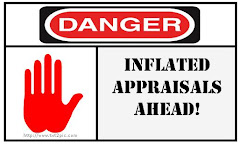10 Tips to Protect yourself from Mortgage Fraud
Mortgage fraud is one of the fastest growing white-collar crimes in the country with Michigan being one of the top 10 locations for real estate scams. The downward trend in the real estate market has encouraged mortgage fraud perpetrators to develop and utilize many schemes. The recent rise in foreclosures along with a depressed market, declining values and decreased demand has placed pressure on lenders, builders and home sellers. Fewer loans will be originated as lending practices tighten in response to the subprime lending crisis. Identity theft is a popular tool for use in mortgage fraud. With higher lending standards being enforced, individuals with good credit are valuable to perpetrators; therefore, at risk for identity theft and mortgage fraud schemes.
How it Works
Mortgage fraud is divided into two major categories; fraud for profit and fraud for housing. Fraud for housing involves misrepresenting income/expense and assets/liabilities information on an application in order to obtain funding to buy a home. Fraud for profit involves industry professionals including mortgage brokers, property appraisers and real estate agents who over state a buyer’s income, assets, property value and other information to trick lenders into approving mortgages.
Sometimes people commit identity theft to obtain housing loans, sell someone else’s home or take over other’s property. Here are some tips to protect yourself from becoming the victim of mortgage fraud:
• Never sign blank or incomplete documents
• Never purchase property that you have not seen and personally inspected
• Use only licensed mortgage bankers or lenders; find a broker through the National Association of Mortgage Brokers (http://www.namb.org)
• Have a local, licensed real estate agent do a BPO (Broker’s Price Opinion) to determine value
• Don’t be pressured into using a particular lender, real estate agent or appraiser
• Know your rights as a mortgage borrower
• Don’t buy into get-rich-quick schemes of instant equity or investment property using your own name – investment property should be owned by an LLC to protect you from liability exposure
• Do not work with someone who suggest that you lie on your mortgage application
• Beware of predatory lenders who charge excessive fees and prepayment penalties
• Most importantly, be sure to look over and understand your truth in lending disclosure documents which spell out the terms of your mortgage, before signing a contract with a mortgage company
If you are in doubt, have an attorney look over your documents and advise you. The fee for this service is little compared to the tens of thousands you can be charged for dealing with problems caused by mortgage fraud later.
Robert Shumake and Son
14 years ago







